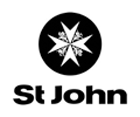Summer Health & Safety Advice from St John
Heat
Heat is a frequently underestimated occupational hazard of the construction industry and its effects are easily preventable with careful common sense planning. When temperatures soar, workers who perform outdoor jobs risk being more than just uncomfortable — the work can cause serious illness or even death. High humidity and prolonged periods in the sun can lead to heat exhaustion or heat stroke. Employers and workers should be familiar with some of the common signs of heat exhaustion.
Overheating
Heat related conditions can be caused by overexertion in warm to hot environments. Signs and symptoms include thirst, weakness, sweating, nausea, rapid breathing and confusion.
If you suspect a workmate is overheating:
If you suspect a workmate is overheating:
- Rest them in a cool place
- Give them fluids to drink
- Arrange medical attention from a doctor or call healthline on 0800 611 116 for advice if you are unsure.
Heat Stroke
Heatstroke is a serious condition and requires urgent medical attention. It is extremely important to watch for signs of heat stroke. Some signs to look for include no sweating, confusion, seizures, unconsciousness.
What to do:
What to do:
- If you or someone you know experiences these symptoms, seek medical advice immediately call 111.
Sunburn Safety
Sunburn is common in New Zealand. Prevention is better than cure, and people should remember to be SunSmart:
What to do:
- Slip into a shirt
- Slop on some sunscreen
- Slap on a hat
- Wrap on a pair of sunglasses.
What to do:
- DO NOT burst large blisters
- Sunburn ointment may be applied for minor burns that are not severely blistered and have no broken skin
- Seek medical assistance for large-area sunburns, or if the person is feeling unwell, or if large blisters are associated with the burns.
Prevention is better than a cure!
Here are a few tips to reduce the risk:
- Go easier for the first few weeks in the heat.
- Drink water every 15 minutes. Don’t wait until you feel thirsty.
- Plan the day to tackle tougher jobs during the cooler morning hours.
- Rest in shaded areas or air conditioning, if possible.
- Apply sunscreen with a sun protection factor (SPF) of 15 or more. Be sure to apply it about 15–30 minutes before exposure. If you’re out in the sun all day, reapply every 2 hours.
- Drink plenty of fluids.
- Finally, watch your colleagues for signs of heat illness – especially heat stroke!
 |
You call us for help, call us for training too. Be prepared in a medical emergency.
Visit www.stjohn.org.nz first-aid to book online or call 0800 FIRST AID (0800 347 782). |
